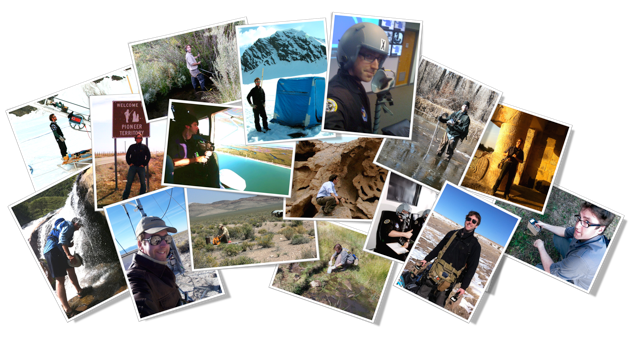ABOUT
A Las Vegas native and an enthusiastic adventurer for science outreach, Ben leverages his far-reaching experience as a professional scientist to enable and improve public media and education projects. From working for large industrial contractors to small environmental firms; university research programs to government labs; and emergency response organizations to software developers and television production companies, Ben’s insight spans nearly all interest groups and allows him to recognize and present all sides of science-centric issues.

Specifically, Ben has worked as a professional geoscientist, radiological engineer, space scientist, college educator, science outreach public speaker, aerospace and scientific consultant, author, and he is an aspiring commercial astronaut.
Ever skeptical about extraordinary claims, Ben believes the scientific method is the most powerful and successful tool humanity has constructed to understand our universe. He is a staunch advocate for science education and feels that scientists have a social responsibility to help the public find answers to the questions they have about the Earth, our environment, and the cosmos at-large.
_______________________
His research interests include the geomorphology of exotic sediment transport mechanisms (e.g., thermal vortices, supercooled anchor ice), arid geohydrology, nuclear propulsion systems (e.g., nuclear thermal rocketry, direct alpha emission thrusters), aerospace archaeology and xenoarchaeology, space human factors and astronaut integration, and the theoretical physics of time in special relativity.
Publications and conference abstracts/presentations he’s authored or co-authored can be found at Academia.edu, while his professional C.V. can be found on LinkedIn:
_______________________
Music
In the case of blues jazz, these rules are blues chord changes. With science innovation, the rules are represented by a given scientific paradigm. In both cases, Ben believes, rules can sometimes be bent (or even broken), so long as one knows how to properly resolve the ad-libbed melody or scientific concept within the chord changes.
Intriguingly enough, there is a precedent for scientist-innovators who not only played music, but who improvised as well. These include two Nobel Prize-winning scientists: Dr. Edward Teller and Dr. Richard Feynman. (...Doubly curious is the fact that while their contributions to science differed greatly, both of these men worked on nuclear physics problems under the Manhattan Project...)
Ben at a Glance
Copyright (C) 2016 Benjamin McGee.






